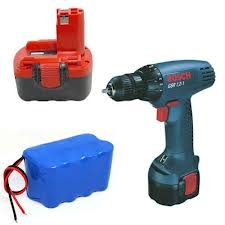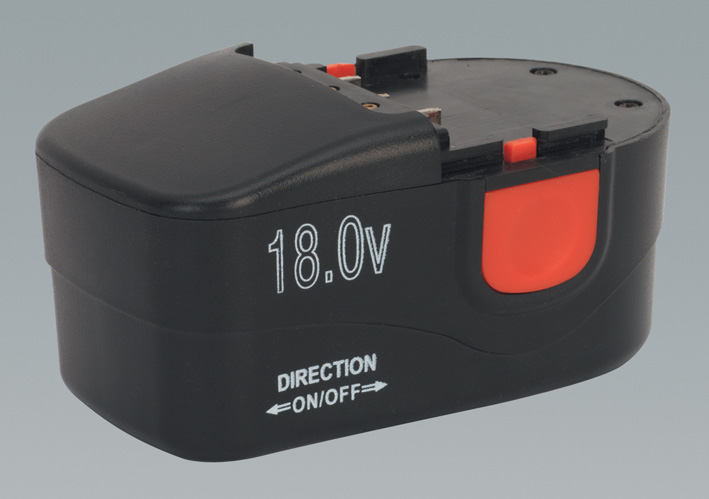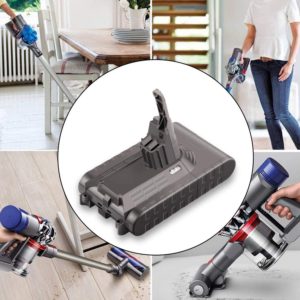Comparing Brands of 18V Power Tool Batteries
Today AussieBatt cordless drill battery expert going to have a bit of a chat about cordless tool batteries, particularly 18v batteries since that`s what most people are using and because a battery is not just a battery anymore and customers constantly ask me which are the best. So hopefully this will help at least one person out there who is wondering from a technical point of view which power tools battery has the best advantages.
Anything written here is just intended to help my customers make a more informed decision as to which system they want to go with. Nothing more and nothing less. I`m a makita LXT user myself but i try to be as unbiased as possible, so your welcome to take it or leave it. My opinion comes from 20 years as a carpenter and several years of running a high turnover Tool Store. So i have a pretty good idea of what i`m talking about.
We are in the age of smart batteries now and the new batteries on offer from different companies have pros and cons that need to be looked at in a little detail, since the battery is a very important part of the system and they arn`t cheap.
Ok so let`s as quick as we can take a look at the 4 main players in the market and what they offer. Dewalt, Makita, Milwaukee & Hitachi. Those 4 Manufacturers batteries can be easily split into two groups, Those with smarter batteries and those without. What`s a smart battery? That`s what we call batteries that have a good form of voltage, current, heat, & overload protection for the li-ion cells inside. Why do you need that & why is that important?To put it simply the heat limit of a li-ion battery is only 50 degrees C versus the older ni-cd batteries that handled 75 degrees before taking damage and NI-MH that handled 65C. So there is a big issue with damaging li-ion batteries in power tools by getting them too hot. Fast discharges in high load tools really heats them up. So a MAKITA 1434 Power Tool Battery having protection against over heating is a big deal if you want to get a good lifespan from a li-ion battery. Or alternately having a tool that can fit ni-cd batteries and li-ion batteries to give you options is also a good idea. So here`s where we get to the 2 groups of normal versus smart batteriesDewalt & Makita:
Makita currently uses sony cells in the BL1830 & BL1815 LXT Makita batteries and these are the biggest seller in the market by far. They are regarded as one of the best conventional li-ion cells available and are very reliable. Makita batteries have a very low fault rate straight out of the factory and it`s very unusual for me to see a battery that won`t charge out of the factory or that dies after only a few cycles.
The problem with these batteries is that they don`t switch off and stay off of when they get too hot or over discharged. They may switch some of the tools off when they get too hot but it`s usually just a matter of switching it back on and it will start again. The battery doesn`t stay switched off like some of the other brands do now. Most people simply don`t realise the battery is to hot and try to keep using it. That`s how they take damage. These batteries can also be discharged to the point of death, it will not switch off once it gets too flat and that can prevent a battery from being recharged again. If it gets too flat to run the protection circuit inside the battery it can trip the fire protection switch designed to stop the battery from exploding when being recharged and from there that`s it you`ve got a dead battery that won`t recharge in the charger.
Yes they can explode & make quite a big bang if they do. I`ll put it too you this way if a li-ion battery ever starts smoking in your hand and you want to keep your hand, then you`d want to quickly throw that battery as far away as possible.
 The LXT batteries have been on the market for a while now and the technology is getting outdated it does offer some protection but it`s not enough in my opinion. Other companies have released batteries with better protection, making them more idiot proof. Makita users need to manage heat in their batteries or they will destroy batteries with in a year or two with over heating and over discharging issues. Hence why i don`t think they are the best tool battery.
The LXT batteries have been on the market for a while now and the technology is getting outdated it does offer some protection but it`s not enough in my opinion. Other companies have released batteries with better protection, making them more idiot proof. Makita users need to manage heat in their batteries or they will destroy batteries with in a year or two with over heating and over discharging issues. Hence why i don`t think they are the best tool battery.
But for people who don`t know, they can severely damage Makita li-ion batteries by over heating & over discharging them. The makita LXT battery doesn`t protect itself well enough in my opinion. It`s well over due for an updated more idiot proof version.
Dewalt has by far some of the best options available in my opinion for those guys who really work tools hard and work in high temperatures. Why? Well with the Dewalt XRP tools you can still use the DEWALT DC9096 Cordless Drill Battery yellow top Ni-cd battery and also the new li-ion batteries in the same tool. The base accepts either type of battery and that`s a really big bonus.
Since ni-cd xrp batteries are pretty much still the best battery for a high load power tool in hot weather and one of the best batteries ever made it`s great to be able to use both. What i tell most customers is that if your buying a Dewalt li-ion combo it`s great to have an older ni-cd battery or 2 as well. So when it comes to time to get a battery into something like a circular saw or grinder and flatten it in 10 minutes you use your Ni-cd battery, rather than doing damage to your li-ion battery. Especially when it`s really hot outside. It`s quite easy to get a battery to 50 degrees but quite difficult to exceed the 75 degree heat level of the old DC9096 XRP Ni-cd`s. Even though there`s lots of advantages to a li-ion battery you still can`t get past the fact that they take damage after 50 degrees and the faster they get discharged the shorter the lifespan of the battery will be. When your using li-ion in a cell phone it`s no issue but in a power tool that drains batteries in 10 minutes heat is a big issue.
It`s not uncommon for a customer to come in with a DC9096 Ni-cd that is 6 or 7 years old and from their original kit and is only now just starting to die. So hence why i regard the DC9096 as the worlds best battery for guys who really work tool batteries hard and want a bullet proof battery. Of course it`s heavier and discharges itself way quicker when sitting around than a li-ion battery and under the right conditions the li-ion will get more recharges if they get treated well. Add to that the advantage of constant power you get from a li-ion battery and that`s why companies swapped to li-ion to power their tools now.
Dewalt chose to go with a nano phosphate chemistry that would be more inclined to handle the abuse of a power tool in the XRP li-ion batteries but they still suffer from the same effects that any li-ion cell suffers from. I don`t believe they achieved their goal with the A123 li-ion cells that are in the new Dewalt power tool batteries and they stretch the truth a little in some respects when answering questions about those on their website and from customers reports they are killing batteries that get worked hard in 12 months to 2 years, just like other li-ion users that work the batteries hard. Rumour has it that Dewalt will swap to samsung cells at some stage who have started to make phosphate chemistry cells similar to the A123 cells that dewalt has been using. The DC9180 and DC9181 batteries are meant to shut down if over discharged or overheated. The only things i find disappointing is the lack of a fan in the charger and the lack of any venting in the battery casing on those batteries. Dewalt`s answer is that a fan in the charger won`t help a battery that has been already over heated, this is true but what it does do is make the battery a bit cooler while it`s charging. Since you might want to put it into a tool shortly after charging the lower the temperature of the battery after charging the better. They kind of contradict themselves a bit in advertising, in one answer they`ll say don`t charge or use a battery in temperatures above 40 degrees, and in other answers they`ll say exceeding the batteries heat range won`t cause damage. I can tell you it will and you really have to be care full.
Also as a note never leave Li-ion batteries in places like a toolbox in the back of your ute in the hot summer sun. The battery will be exposed to high temperatures for long periods of time and will take significant damage and cycle loss. That can be worse than overheating them in tools since the exposure time to excess heat levels will be much greater.


